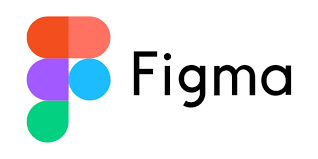Figma Revamps UI and Adds Generative AI Features in Latest Update
Figma introduces UI3, a new redesign of its platform, and launches a suite of generative AI tools like Visual Search and Content Generation, available in a limited beta.


Figma, the popular design platform, has announced a significant update featuring a redesigned user interface called UI3 and a suite of new generative AI tools. The UI3 redesign is the third major revamp since Figma's launch, aiming to improve usability with features like resizable panels, a new toolbar, and a consolidated layout options panel.
Key Features of UI3
The updated UI, called UI3, offers several enhancements to streamline the user experience. Key changes include:
Resizable Panels: Allowing for greater customization of the workspace.
New Toolbar: Positioned at the bottom of the canvas, providing quick access to essential tools.
Consolidated Layout Options: Merging width, height, and Auto Layout into a single panel for easier access.
The redesign focuses on improving the platform's approachability for newcomers and enhancing usability over aesthetic complexity. Rounded corners, backgrounds on inputs, and hand-drawn icons by Tim Van Damme are notable changes aimed at achieving this goal.
Introducing Figma AI
Alongside UI3, Figma has introduced several AI-powered tools designed to automate and simplify the design process. These tools, offered for free during the beta period through 2024, include:
Visual Search: Enables users to find and reuse designs by uploading an image or entering a text query.
Asset Search: Uses AI to understand the context behind search queries, providing more relevant results.
Content Generation: Allows for the creation of realistic text and images to populate designs.
Remove Image Background: Facilitates the isolation of subjects from images without switching tools.
Make Prototype: Converts static mockups into interactive prototypes.
Rename Layers: Automatically renames layers with contextual titles.
Make Designs: Generates UI layouts and component options using text prompts, creating a draft design for further refinement.
Figma assures users that these generative AI tools are powered by third-party models not trained on private Figma files or customer data. However, starting August 15, Figma admins can choose to use their team's data to train AI models on Figma-specific design concepts, enhancing the tools' relevance to their projects.
Conclusion
Both the UI3 redesign and the new AI features are currently available in a limited beta. Users interested in trying these updates can join the waitlist through Figma's platform. This major update marks a significant step in making design more intuitive and efficient, aligning with Figma's mission to empower designers and teams worldwide.